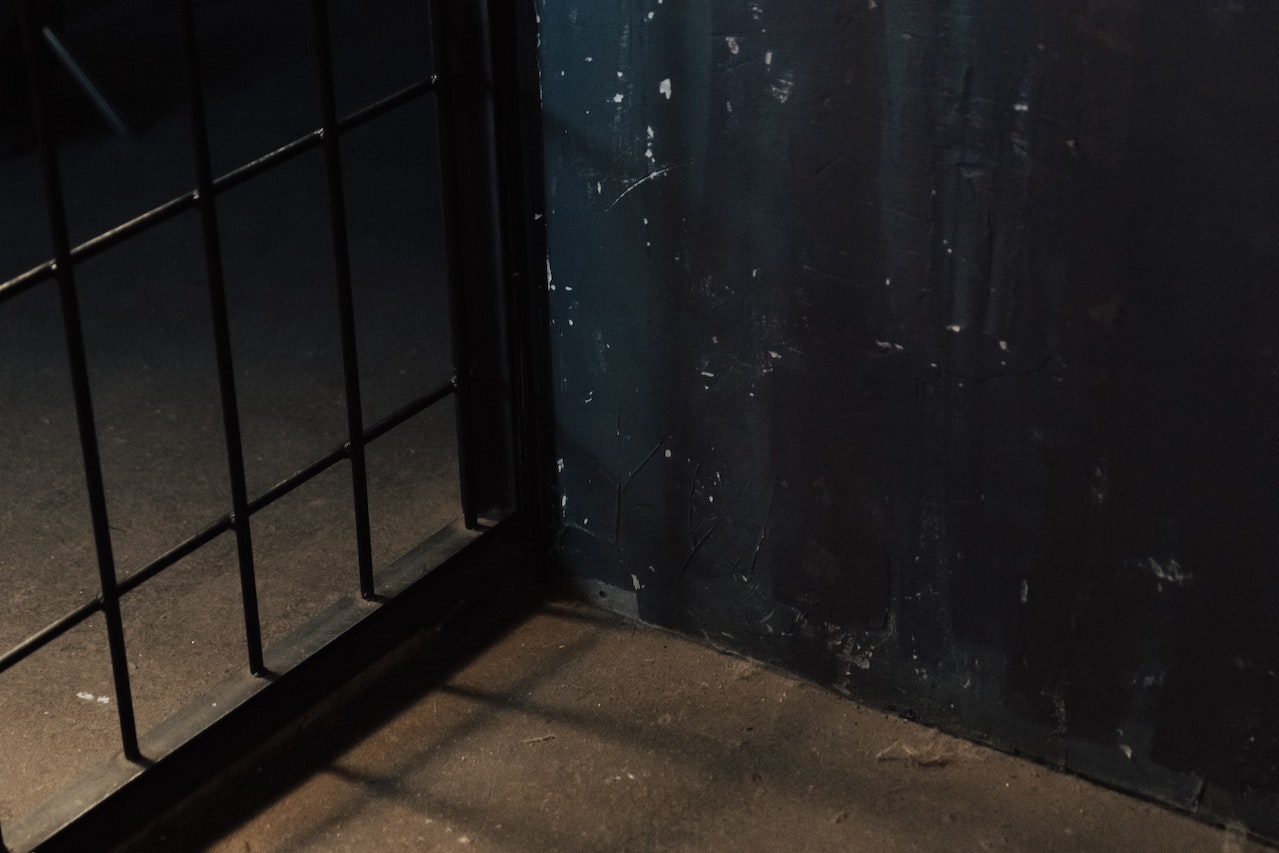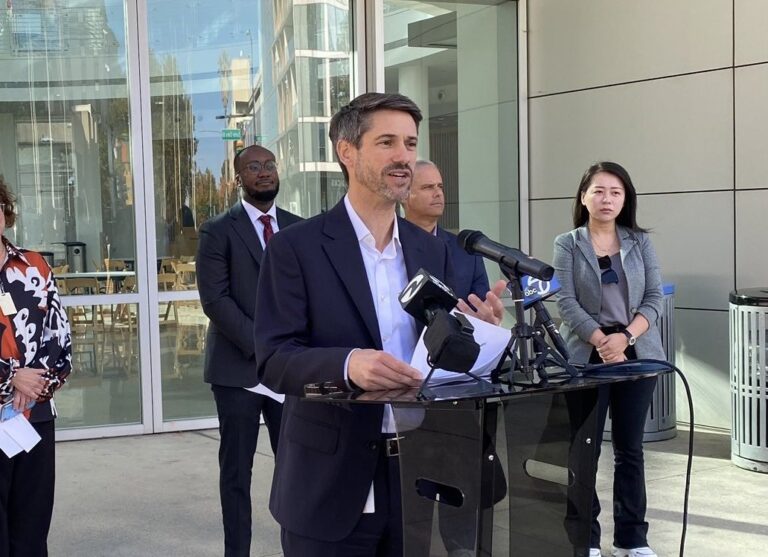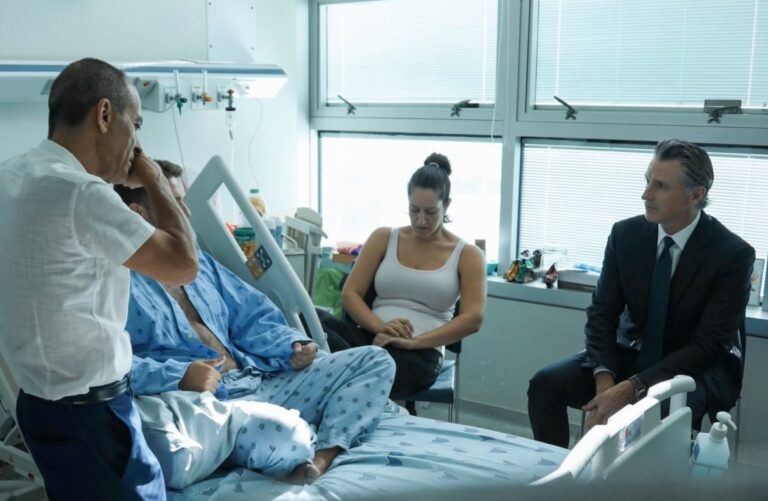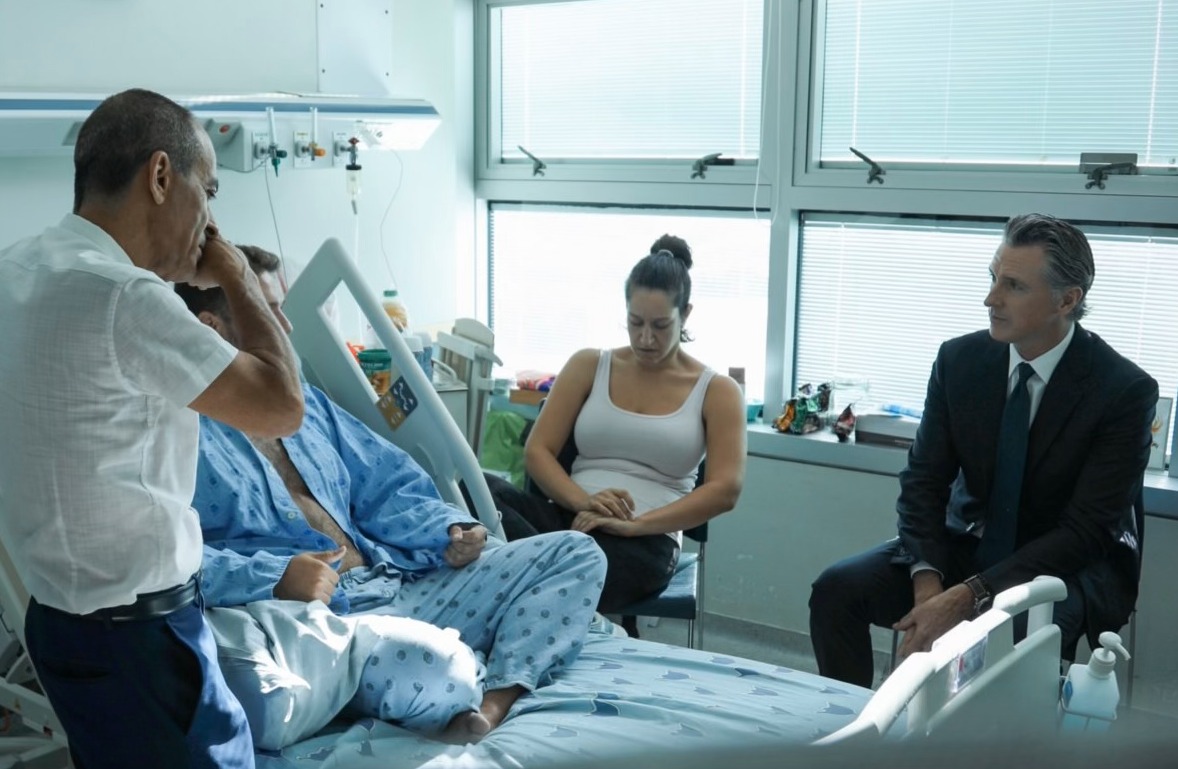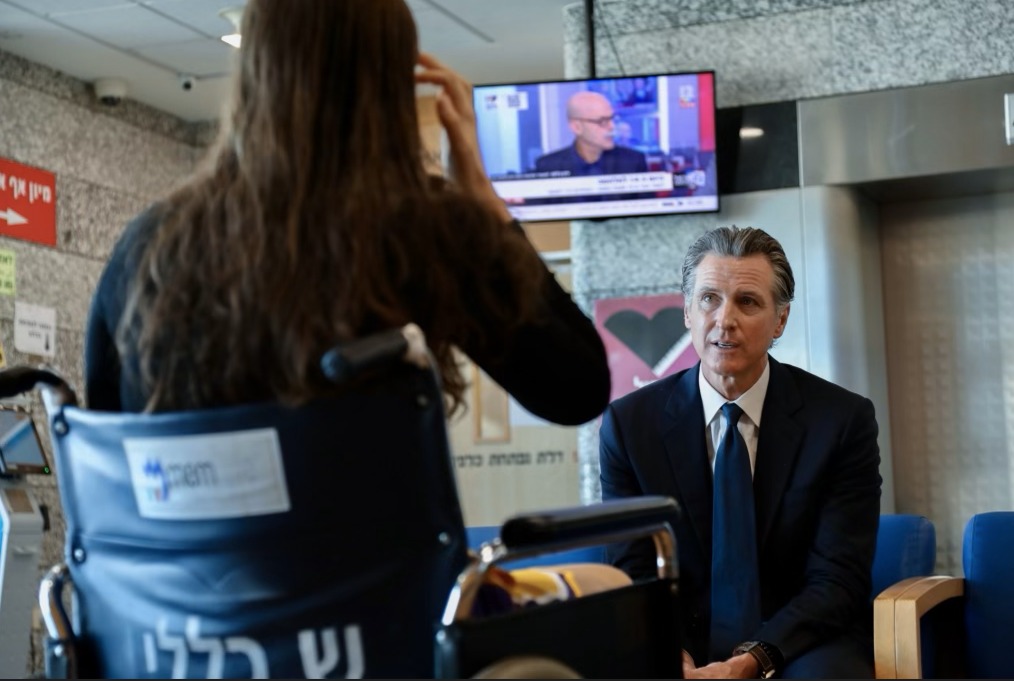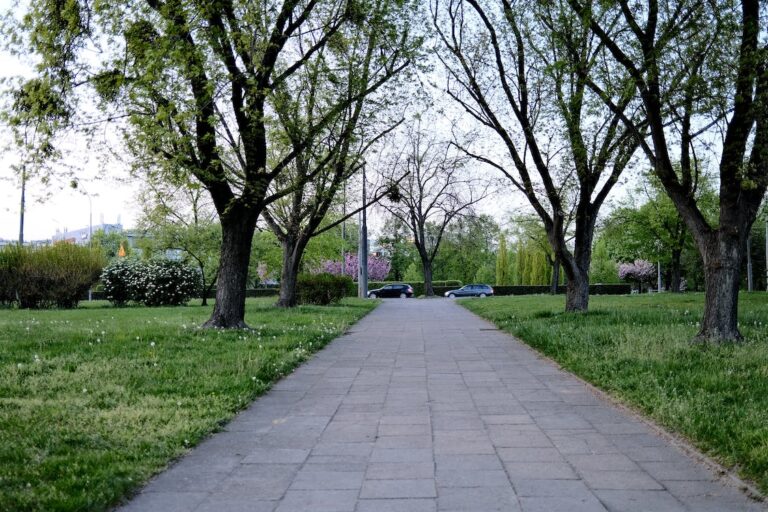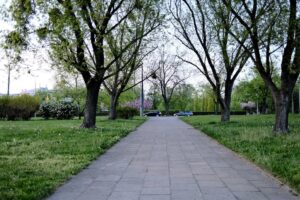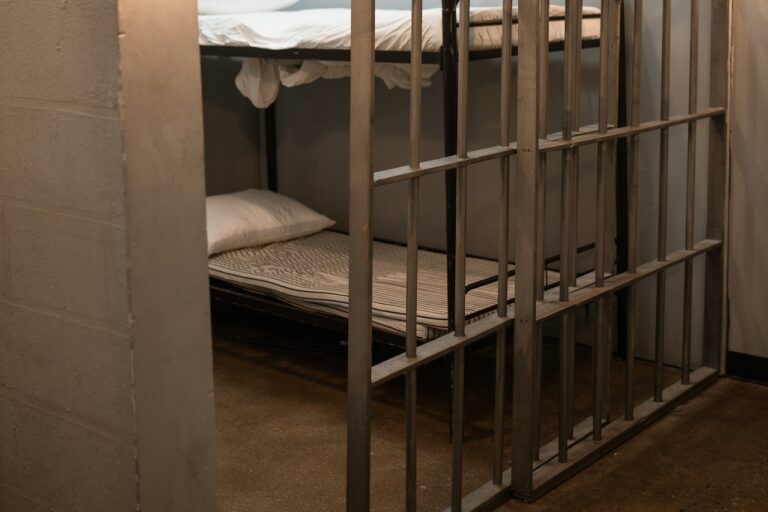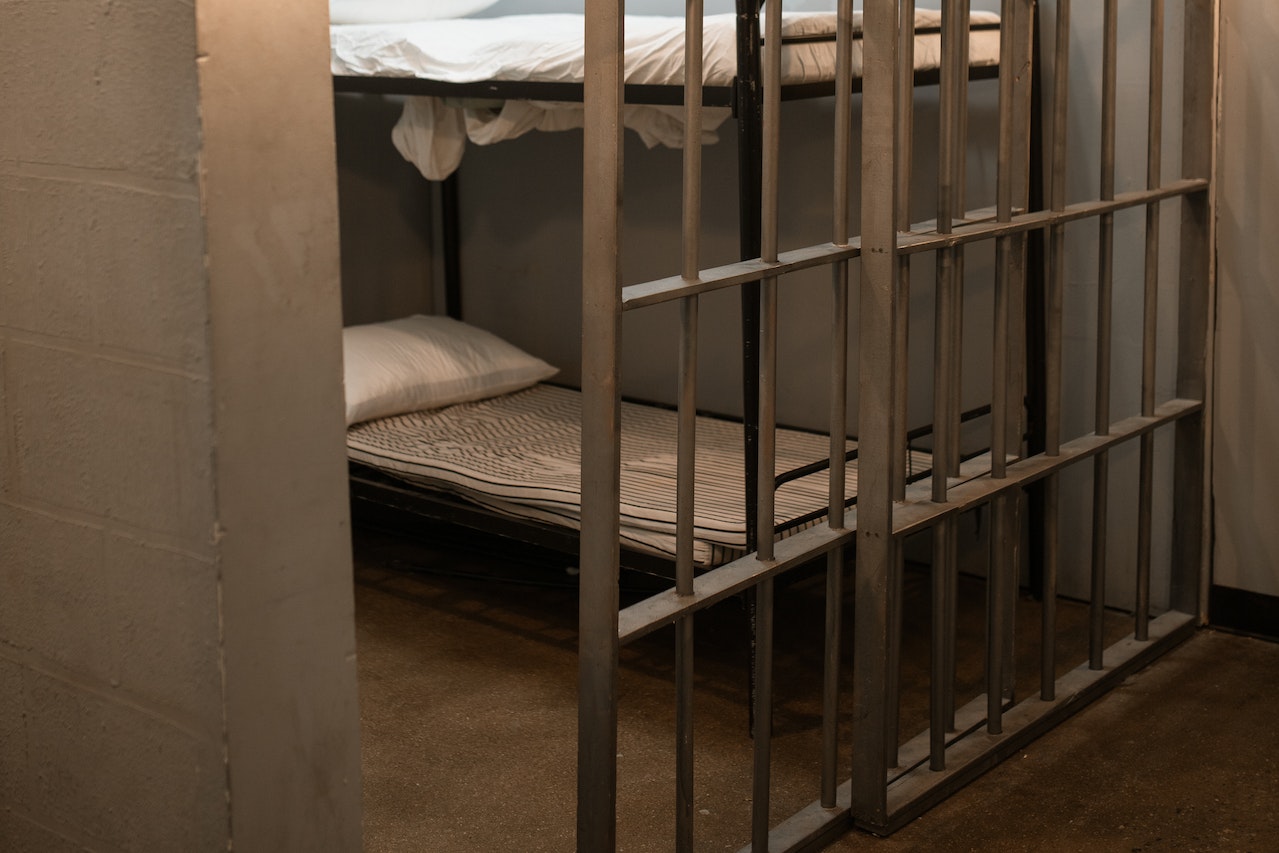
By Ben Irwin. San Jose Spotlight.
A long-running dispute between Santa Clara County and its doctors appears to be over.
Santa Clara County has reached a settlement of an unfair labor practice charge with Valley Physicians Group, a union that represents more than 450 physicians in the county's health care system.
The complaint stemmed from letters threatening unionized doctors with a strike over stagnant contracts and unsustainable working conditions. The agreement includes requiring the county to retract threatening statements made by its executives and require training on California labor law.
Rachel Ruiz, president of Valley Physicians Group and a pediatric gastroenterologist at Santa Clara Valley Medical Center, told San José Spotlight that the heart of the settlement is that the county acknowledges it is at fault for threatening doctors and must retract hostile letters sent by former county executive Jeff Smith, chief medical officer Phuong Nguyen and Paul Lorenz, CEO of Santa Clara Health & Hospital System.
“Coming out of the post-Smith era, I think (the settlement) is a win for both sides,” Ruiz told San José Spotlight. “We want to move forward, but also make it clear that… we’re going to speak up and stand up for what’s right, our rights protected, and we won’t tolerate bullying.”
Smith, who oversaw the dispute among emergency department doctors, proved a controversial figure during his 13-year tenure. Doctors and other VMC workers said the executive was tone-deaf and did not understand their needs.
A spokesman for Lorenz directed questions to the county executive's office.
James Williams, the county executive who replaced Smith in July, told San José Spotlight that he looks forward to working closely with the county’s unionized physicians to financially improve the public health system and continue to expand quality and access to care.
“It was a challenging negotiation for both sides, and this (agreement) is part of getting past that and moving in a really positive direction,” Williams told San José Spotlight. “The issues that were happening then are just not relevant today and hopefully won’t be in the future.”
The county reached an agreement with Valley Physicians Group last October, just days before its unionized doctors planned to strike. Ruiz said the contract that added standardized pay raises is an improvement for doctors working on the front lines during the COVID-19 pandemic, but more needs to be done.
“We are a safety net hospital system,” Ruiz said. “We want fair wages … (we also) want to be able to advocate for our patients and help them get better access to health care. I think we’re still fighting for that.”
In March, emergency department physicians won another victory. The Santa Clara County Board of Supervisors approved a new five-year management contract with San Jose-based Emergency Physicians Associates Management Corporation. The company already provides similar services at the county's two other hospitals, O'Connor and St. Louise Regional. VMC physicians fought the county over renewal of their existing contract with US Acute Care Solutions. The physicians claimed US Acute Care Solutions put profits ahead of patient care.
Ruiz said some departments are not accepting new patients. Whether it’s because of staff shortages or “culture” issues, she would like to see the county work with doctors to address the situation.
“We have doctors leaving all the time,” Ruiz said. “Why are they leaving? … How can we make clinics and hospitals run more efficiently? With James Williams, we hope we can be part of the solution.”
Read the original note giving Click here.
You may be interested in: Union leaders reject San Jose mayor's 'olive branch'











 This publication was supported in whole or part by funding provided by the State of California, ayou administeredred by the
This publication was supported in whole or part by funding provided by the State of California, ayou administeredred by the 

